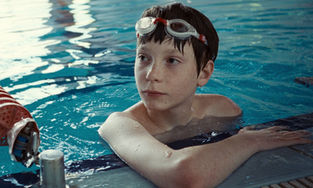'The United States Vs. Billie Holiday' Review: Andra Day Portrays The Troubled Jazz Singer
- S.J.

- Jul 1, 2021
- 3 min read
Updated: Nov 3, 2023

The film gets the name The United States Vs. Billie Holiday from a court case depicted in it but to make it represent two hours of story it tells, few more oppositions should be added to the title as it doesn't quite commit to that contrast or to the singer known as Billie Holiday. We start in 1957 when Holiday (played by Andra Day) is doing a radio interview which is supposed to be a retrospective look at her career and life, flashing us back to the late 40s and early 50s. Holiday is being hounded by the FBI and its high-ranking commissioner Harry Anslinger (Garrett Hedlund) with all kinds of schemes involving a federal agent Jimmy Fletcher (Trevante Rhodes), who infiltrates Holiday's inner circle, and following drug raids as Holiday is an addict. This is all because of a song called 'Strange Fruit' that the FBI doesn't want to be performed since it is about lynchings of black people, a notion that Holiday refuses to comply.
With all those massively interesting threads to start from, it's absolutely aggravating that the movie not only commits to all themes in the atmosphere half-heartedly, but also does it in a way that is exhausting from a filmmaking standpoint. Writer Suzan-Lori Parks' script and director Lee Daniels never seem to have a grasp on what exactly they want to convey with their scenes or their material.
The song 'Strange Fruit' is perhaps the most important aspect but we never really get to know the impact of it or why it became such a dealbreaker for the FBI, and we never get to know Billie's motivations or logic because Daniels is more interested in showing repetitive scenes of a sad addict doing sad addict things. Instead we're following this weak romance story between Billie and Jimmy that never transforms into more than sexual tension, even breezing past her affairs with women in a way that makes the multiple men in the film seem more important than Billie or her sense of herself.
Since the movie never finds thematic balance, it's a rough one-two punch that the filmmaking choices annihilate you as well. Daniels' direction throws everything at the wall with zero care, editing by Jay Rabinowitz follows that with no rhythm or sense of space (it's genuinely hard to know where we are at times and which characters are nearby) and the overall structure is a mess, even inspiring quick laughs when we cut back to the radio interview at the end and when the last act has about eight final scenes (plus all those biopic intertitles).
Some of the better things in the film were the work of the hair department (actually telling us about characters' state of mind and stature) and singing of Day which is both fantastic to listen to and more informative than the two hours of shallow dialogue. That runtime is truly unforgivable in this case because it's an awful lot of time to spend when the movie doesn't know what it wants to be or what it wants to look like.
Smileys: Hairstyling
Frowneys: Screenplay, structure, directing, runtime
Luckily the supporting cast was so wonderful that you can at least recognise them from better films, knowing that this won't end their careers.










